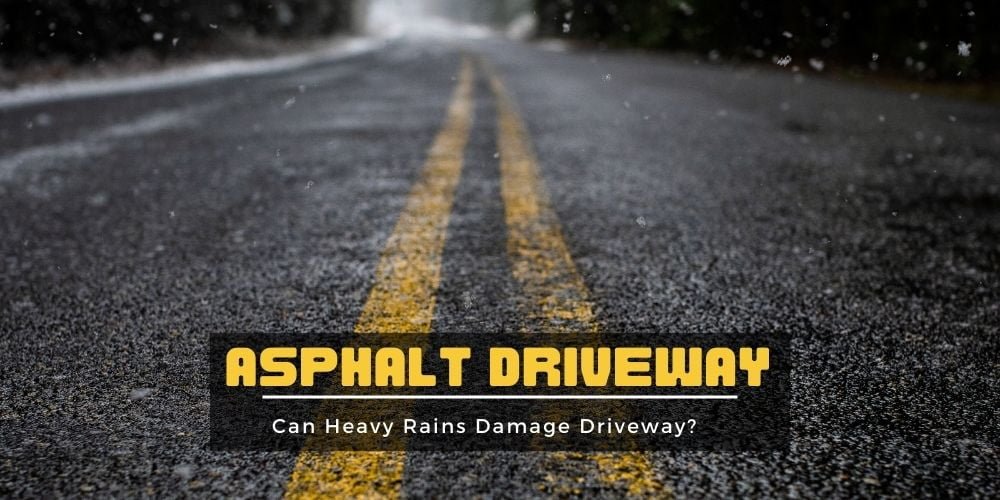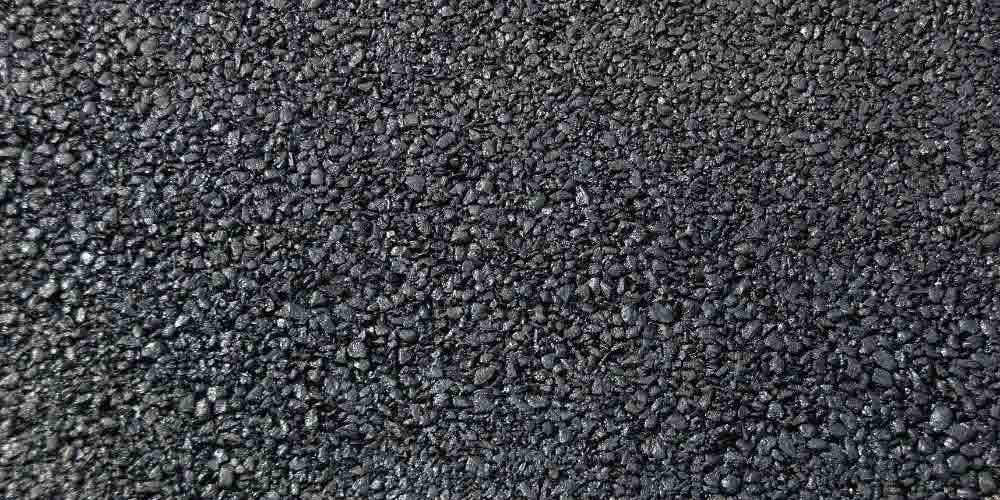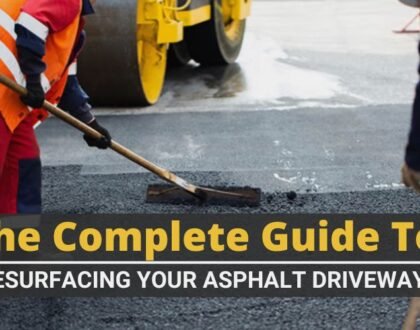Can Heavy Rains Damage My Asphalt Driveway?

Very few acts of nature can damage an asphalt driveway as much as a continuous, heavy rain. When enough moisture accumulates on asphalt, you are looking at gradual, yet severe damage over time. Therefore, you might wonder how to prevent such mishaps from occurring and how to repair the damage that is already done. As experts in driveway installation and maintenance, we have those answers for you.
What is Asphalt?

Asphalt is a paving material that consists of a combination of aggregates, filler, and binder. Although the more commonly used aggregates contained gravel, sand, or crushed rock, asphalt mostly contains recycled materials and by-products of construction sites. In turn, this makes today’s asphalt more sustainable than previous mixtures. Regardless of its composition, the asphalt driveway still ranks high as a popular option for residential and commercial properties.
How Does Rain Damage My Asphalt?
While asphalt proves to be sustainable and durable, moisture accumulation can have a negative impact on your asphalt driveway. When water meets the pavement, the asphalt loses strength and durability over time. This happens when moisture breaks the bond between the aggregates and the bonding agents. Basically, the water causes the asphalt to expand. The result is cracking, crumbling, and pitting of the driveway’s surface. As time passes, if this issue is not repaired, you will find potholes and cracks along with pieces of asphalt that have chipped away from the edges.
Tips to Prevent rain damage from Asphalt Driveway
Fortunately, you can minimize, and even prevent, severe damage to your asphalt driveway. Of course, the first and most important step begins with the installation. A crew with vast experience and expertise will integrate proper rainwater management into the construction of your driveway. These measures include:
- Ensuring there’s adequate drainage in the areas that will be covered with asphalt
- Making sure the large quantities of water drain into areas that won’t flood, thus sending the water back to the driveway
- Building the driveway in an area that has enough slope to allow for proper drainage
When you’re starting the process of planning your driveway, a reliable contractor will closely examine the location of the driveway and point out to you exactly where the prep and installation will occur and how to avoid water accumulation. Plus, this person will map out various points where drainage can safely occur without damaging the driveway or the surrounding areas.
Another tip for preventing rain damage is to keep up with the regular maintenance and repairs of your asphalt driveway. Filling in holes and patching cracks as quickly as possible extends the life of your driveway and prevents additional moisture from getting underneath. In fact, when you seal even the smallest cracks right away, you prevent rain from seeping into the layers below the surface, thus preventing more damage from occurring.
Also, a special sealant specifically for asphalt driveways can be applied. Known as sealcoating, this process involves applying a rubber-based coat over the driveway’s surface. Once it has dried, the sealcoat provides a protective layer that keeps the excess water from settling in and guards the surface from the elements and UV damage. An additional bonus is that the sealant resurrects the original luster of newly installed asphalt.
Also Read:- Asphalt Driveway Maintenance Tips to Prevent Cracks
How To Repair Your Damaged Driveway
If you’re repairing cracks on your asphalt drive, you’ll need a compound specifically made for that purpose as opposed to caulking or concrete. Both of those compounds work but only for a short time. Asphalt filler for cracks and potholes can be found at your local hardware store. Nevertheless, you still have a nominal amount of prep work to complete before filling the cracks and craters. This preparation includes:
- Sweeping the surface and clearing out all debris
- Removing weeds and dirt from the cracks
- Spraying weed killer into the cracks
Likewise, you’ll need to wait for the weed killer to seep underneath the surface. The timing depends on the manufacturer’s instructions. From there, you’ll fill in the cracks with the material of your choice and then cover it with patching compound. Before you apply sealant, you’ll need to wait for the patching material to cure.
Call A Professional to Repair or Repave your Asphalt Driveway
If either maintenance or repair process sounds rather time-consuming or complex, you should opt for a professional service such as Tarworks Construction. Store-bought materials can get expensive and might not give a strong or attractive finish to your driveway. Additionally, if you’re not careful with applying the sealcoat, you’ll not only have a messy finish but also one that won’t protect the surface. Therefore, calling the best asphalt driveway professionals in Johannesburg saves both time and money in the long term. Contact Tarworks now to set up a maintenance plan.
Recommended Posts

What is the Difference Between Tarmac and Asphalt?
September 23, 2023

The Complete Guide To Resurfacing Your Asphalt Driveway
November 17, 2022

Tarmac Vs Asphalt:- Which is best for your driveway?
October 10, 2022
